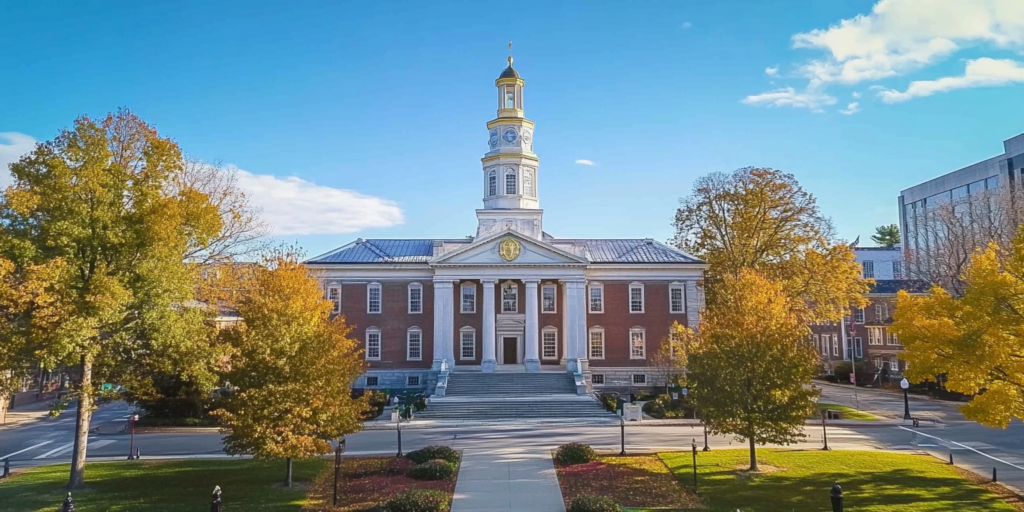
The Granite State
New Hampshire, affectionately known as the “Granite State,” is a land of rugged beauty, historical significance, and independent spirit. Nestled in the northeastern corner of the United States, it offers a compelling blend of outdoor recreation, charming towns, and a unique political landscape, making it a distinctive and fascinating place to explore.
History:
New Hampshire’s history is deeply rooted in the early days of colonial America. It was one of the original thirteen colonies and played a significant role in the Revolutionary War. Settled in the 17th century, the colony grew around fishing and lumber industries. Its strategic location made it a crucial part of the early American experience, and its residents played a part in shaping the nation’s identity, including being one of the first states to declare independence from British rule.
Geography:
Characterized by its varied terrain, New Hampshire boasts a dramatic landscape. The state is dominated by the rugged White Mountains in the north, home to Mount Washington, the highest peak in the northeastern US, and expansive forests and lakes. The eastern border is marked by a relatively short but stunning coastline along the Atlantic Ocean. Rivers like the Merrimack and Connecticut flow through the state, shaping its valleys and providing resources for communities.
Cities:
While not known for sprawling metropolises, New Hampshire has several important cities. Concord serves as the state capital, a historic city with a blend of government, cultural, and commercial activities. Manchester is the largest city, a former mill town that has transitioned into a business and cultural center. Portsmouth, a historic port city on the coast, offers maritime charm and vibrant nightlife. Nashua, located in the southern part of the state, is another key population hub with a thriving economy.
Weather:
New Hampshire experiences a typical four-season climate with distinct weather patterns. Summers are warm and humid, with temperatures often reaching the 80s and 90s. Autumn brings vibrant foliage, clear skies, and crisp air. Winters are cold and snowy, with abundant opportunities for skiing and snow sports. Spring can be variable, with a mix of rain and sunshine as the landscape transitions from winter to summer.

Politics in New Hampshire:
New Hampshire’s political system is renowned for its distinctive features, often described as a blend of grassroots democracy, fiscal conservatism, and a strong independent streak. It’s a state where individual participation is highly valued and where the “live free or die” motto isn’t just a slogan but a reflection of a deeply ingrained political philosophy.
Key Features of New Hampshire Politics:
- “First-in-the-Nation” Primary: This is perhaps the most well-known aspect of New Hampshire politics. Every four years, the state holds the first primary election in the presidential nomination process. This gives New Hampshire an outsized influence on the selection of presidential candidates, as they must compete directly in a small state with a strong emphasis on face-to-face campaigning and direct engagement with voters. This creates a unique environment where candidates spend considerable time in the state, engaging in town hall meetings, debates, and small gatherings, making it a pivotal battleground.
- Citizen Legislature: The New Hampshire General Court, the state legislature, is the third-largest in the English-speaking world, with 400 representatives and 24 senators. It’s designed to be a citizen legislature, meaning that most members are not full-time politicians. They hold other jobs and serve part-time, often with a strong connection to their local communities. This helps bring diverse perspectives and experiences to the decision-making process.
- Town Meeting System: New Hampshire is one of the few states that still utilizes the traditional New England town meeting system. In March, voters in each town gather to debate and vote directly on local issues, budgets, and ordinances. This system fosters a high level of civic engagement and allows for a direct form of democracy, where citizens have a voice in shaping their communities. Town meetings are often lively and passionate affairs, representing the direct connection between the citizenry and their local government.
- Fiscal Conservatism: A hallmark of New Hampshire politics is fiscal conservatism. The state has no sales tax and no income tax, relying primarily on property taxes and other fees. This places a strong emphasis on spending efficiency and limited government, often leading to a low overall tax burden compared to other states. There is a strong emphasis on keeping government spending low and balanced.
- Emphasis on Individual Liberty: The state’s “Live Free or Die” motto is more than just a saying; it encapsulates a deep-seated commitment to individual freedom. New Hampshire generally has fewer regulations and a strong emphasis on personal responsibility. This focus on individual liberty often translates to policies that prioritize individual rights and freedoms over government control.
- Independent Voters: New Hampshire has a large bloc of independent voters who do not necessarily align with either the Democratic or Republican party. This makes the state more unpredictable in elections, where voters are willing to support candidates from either party, based on their individual views and merits, making it a true swing state in national and local elections.
- Low Barriers to Participation: New Hampshire aims to make political participation accessible. It has one of the easiest voter registration processes in the country. It does not require voter identification at the polls. The State also allows for same-day voter registration.
- Impact of Local Issues: In addition to the statewide and national politics, local issues often play a major role in New Hampshire’s political discourse. Topics like school funding, property taxes, land use, and environmental conservation are hotly debated at the local level, demonstrating that politics in the state is very much community-driven.
Challenges and Debates:
New Hampshire’s political landscape isn’t without its debates and challenges. Ongoing discussions around issues like education funding, affordable housing, and healthcare, as well as varying political viewpoints, continue to shape the state’s policies. There are also internal debates about finding the right balance between maintaining its fiscal conservatism, the protection of its natural beauty, and the demands of a growing and diversifying population.
Conclusion:
New Hampshire’s political system is a fascinating study in grassroots democracy, fiscal responsibility, and independent thought. It’s a state where the voices of individual citizens hold considerable weight, and where the political process is closely tied to local communities. This unique political environment, particularly the “first-in-the-nation” primary, ensures New Hampshire’s influence is not only felt in the state itself but also nationally during election cycles. Understanding New Hampshire’s political nuances provides valuable insight into the state’s history, culture, and the independent spirit of its residents.